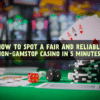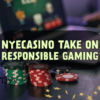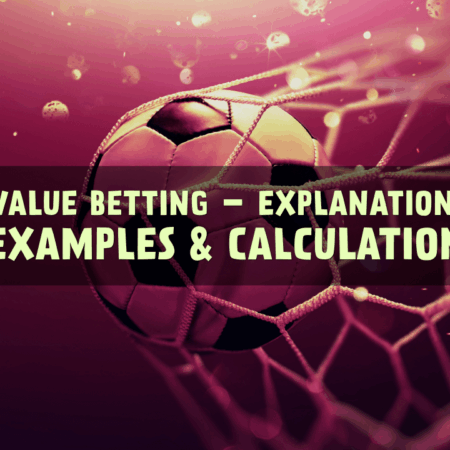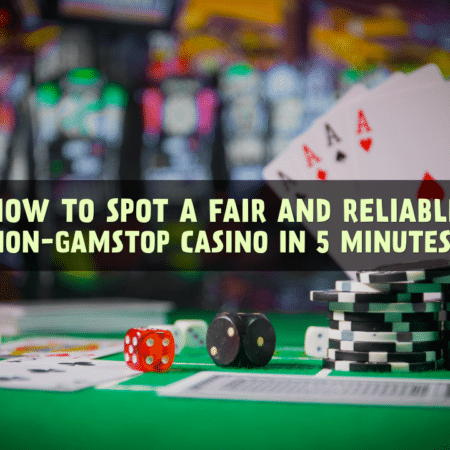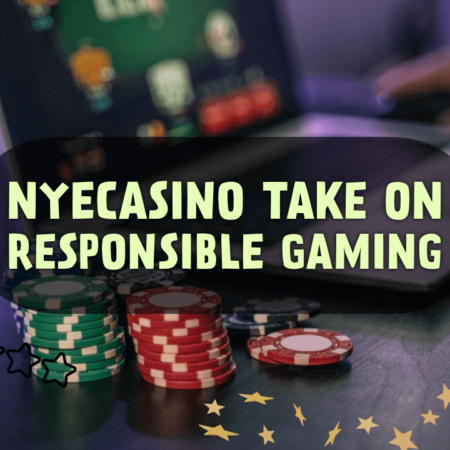Gambling addiction is as old as gambling. The dangers of gambling should not be underestimated, as it can affect even experienced players. This is why we will explain what gambling addiction is and how to recognize it. We will also show you how to best protect yourself from gambling addiction.
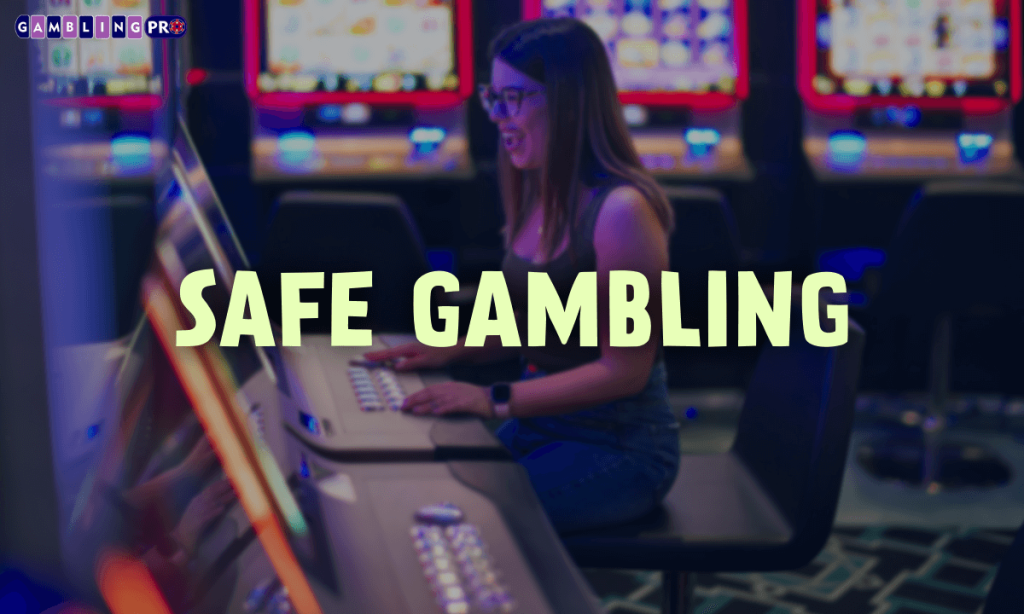
What Is Gambling Addiction?
Gambling addiction is also referred to as compulsive or pathological gambling. Gambling addiction is characterized by the fact that the person affected cannot resist the impulse to participate in gambling or betting, even if this can have a major negative impact on their life. This can be the case, for example, if the person affected is already heavily in debt due to their own gambling career and still continues to borrow money in order to be able to finance their compulsive gambling.
Men suffer from gambling addiction more often than women. The number of those affected in the UK is estimated at around 100,000 to 300,000.
What Are the Symptoms of Gambling Addiction?
Gambling addiction can usually be recognized by certain typical symptoms. These include:
- Excessive mental preoccupation with one or more games or bets
- The repeated attempt to obtain enough capital for one's own game, even if the player has already invested considerably more money than he actually wanted
- The constant increase in the amount of money
- Hiding gambling or betting from friends or family members
- Playing serves to combat negative feelings and problems, which are often pathological (e.g. depression and anxiety)
- If such symptoms are noticed, the player should take a closer look at his behavior before it worsens.
Impact on Work & Social Life
- Neglecting relationships : Often, gambling problems lead to neglecting your friends, family, or partners and avoiding social activities.
- Problems at work : Lack of performance or absence from work can also be early warning signs that you are not in control of your gambling.
Emotional Reactions & Behaviors
- Stress and irritability: If you feel stressed because you can't gamble, or if you feel anxious or guilty after gambling and losing, this could also indicate a gambling problem.
- Escaping from problems: Using gambling as an escape mechanism from everyday worries or problems is another strong warning sign to be aware of.
Lies & Secrecy
- Hiding your gambling behavior: It can also be a sign of gambling addiction if you hide the fact that you gamble from people close to you or deny it.
- Manipulative behavior: When you try to downplay your gambling addiction in conversations with other people through targeted manipulation or to hide it by making excuses.
What Are the Consequences of Gambling Addiction?
Gambling addiction can have a devastating impact on a person's life. The consequences are varied and can be personal, social and financial.
Financial Problems
Financial problems are often the main concern for gamblers. People who suffer from gambling addiction often risk large sums of money to satisfy their desire to gamble. As a result, gamblers often fall into debt, lose their savings and face financial difficulties. These problems can be very stressful and cause extreme stress.
Relationship Problems
Relationship problems caused by gambling addiction are also common. Lies, secrecy and financial problems can destroy basic trust in friendships, family relationships and also in the workplace. This often leads to conflicts and, above all, tensions that can put relationships or jobs at great strain and even endanger them.
Mental Problems
Mental health problems are another serious consequence of gambling addiction that should not be underestimated. Depression, anxiety and self-doubt can arise and significantly affect the well-being of the affected person. The constant pressure and stress of giving in to the urge to gamble can lead to serious emotional problems.
Health Problems
Physical health problems can also occur, such as sleep disorders, eating disorders or, in the worst case, behavioral disorders. The high stress levels and the ongoing strain caused by gambling addiction can also have a negative impact on your physical health in the long term.
Responsible Gambling Self-test – How Do You Do?
That's enough information on this topic. It would be much more interesting if you simply tried our self-test that we have created for you. It consists of just a few questions that you have to answer with a “yes” or “no”. However, it is important that you take a few minutes and answer the questions truthfully.
❓Question 1: Do you often think about gambling, such as past moments or future opportunities or how you can get money for it?
❓Question 2: Have you ever felt an urge to play with higher stakes in order to win more?
❓ Question 3: Do you chase losses when things don't go well and deposit again at an online casino to make up for losses?
❓ Question 4: Have you cancelled a work appointment or postponed a meeting with your friends because you were more interested in gambling than socializing?
❓ Question 5: Do you get frustrated when you get to a free spins round on a slot but then don't really win much and keep playing until the bonus round starts again?
❓ Question 6: Is gambling more of an escape from everyday life to forget your problems for a moment?
❓ Question 7: Have you ever self-excluded but then signed up at a new casino to continue playing?
❓ Question 8: Do you feel guilty or inferior after losing money gambling?
❓ Question 9: Have you ever had moments when you couldn't pay your bills because you lost everything?
❓ Question 10: Have you ever lied to your family, friends or acquaintances when they told you about a possible problem with gambling?
Evaluation of Your Gambling Addiction Self-Test
Now all you have to do is count the number of your “yes” answers to get a first assessment.
0 – 1 “yes” answers: There does not appear to be a serious gambling problem.
2 – 4 “yes” answers: Possible signs of problem gambling. It may be helpful to observe your own gambling behavior more closely or talk to a professional.
5 or more “yes” answers: There is a strong risk of a serious gambling problem. It is advisable to seek professional help.
Please note, however, that we have created this self-test based only on our own experiences. It is only intended to give you an initial indication of whether you may have a gambling addiction. If you are worried about this, we recommend that you contact a counseling center or self-help group.
Prevention: How Can You Protect Yourself From Gambling Addiction?
There are various precautionary measures you can take to prevent gambling addiction from occurring in the first place. Good online casinos allow you to make certain technical settings. You should also write down a few rules for your own behavior before playing and betting and then stick to them later.
On Gamblingpro.pro you will find extensive online casino test and experience reports and answers to the question: Where can you find the best online casinos? Among other things, you will find the best ways to contact customer service, who will be happy to help you with advice and support.
Gambling Addiction Prevention: Technical Possibilities Online
Reputable online casino sites offer technical options to regulate your own behavior. This includes setting stake and time limits. A stake limit can be set by the player or by the platform. Such a limit prevents the player from betting more money than originally intended. A change to this limit by the player only takes effect after a certain period of time. A possible time limit prevents the player from playing longer than this time limit allows.
Another technical possibility is self-exclusion from playing on a platform. This allows the player to block themselves. The online platform will then not allow this player to be active on the platform for a certain period of time. Different periods of time can be selected for this.
Gambling Addiction Prevention: Rules for Self-control
Furthermore, before they start gambling online, players should set their own rules that they should stick to while playing.
Handling Money
How much money will be used to play in a real money casino should be clarified before you start playing. This is the only way to prevent more and more money from being invested in gambling gradually, perhaps without the player even noticing. It also prevents the player from trying to make up for losses with possible future winnings – this is a first step towards gambling addiction.
A player should also only bet money that he can afford to lose.
Dealing With Time
Before playing, a player should also set time limits for themselves, i.e. think carefully about how much time they want to invest in gambling. This time period should not be exceeded. They should also always take breaks when playing. Furthermore, gambling should never become the main activity, so the player should definitely have other activities.
Dealing With Your Own Feelings
A player should always be aware of his or her own feelings when gambling and betting. Gambling should not be used to cover up negative feelings. Gambling should also not be used as a distraction from other problems. It should always be seen as what it is: a form of entertainment and not one to make money.
Protecting Minors From Gambling Addiction
Protecting children and young people from the dangers of gambling is a separate issue, as they are not yet able to fully assess their own behavior. Parents and website operators should therefore take special precautions.
This includes the use of software that prevents minors from accessing certain sites and the site operators actively searching for active minor users of their platform.
The platform’s employees should also receive special training for this purpose.
Help With Gambling Addiction
If a player notices that he has some symptoms of gambling addiction or is even informed about it by those around him, he should urgently find out more about the topic and seek help.
The earlier gambling addiction is treated, the easier it is to break this vicious circle.
Conclusion
It is particularly easy to become addicted to gambling online, as the player is anonymous and unrecognized. Therefore, all gamblers who play online should take the above advice to heart. Gambling should first and foremost be fun and a form of entertainment. If this is no longer the case, you must act quickly!
Loss of Control When Gambling
Frequent gaming: If you find yourself gaming for longer and more often than you intended, this may be a sign that you have lost control.
Inability to quit: When you have tried several times to stop or cut down on gambling despite losses, but you continue to gamble anyway.
Financial Problems
Excessive spending: Spending more money on online gambling than you have available or can afford, or not being able to meet your financial obligations, is a clear red flag.
Borrowing and debts: Taking on debts from family, friends and acquaintances or taking out new loans in order to be able to play at the online casino indicates a serious problem.
FAQS About Safe Gambling
To avoid financial loss, set a gambling budget and always stick to it strictly. Also, avoid borrowing money or using money that you have set aside for other expenses such as living expenses.
The quickest way to block your player account is to contact customer service via live chat. State specifically that you suffer from a gambling addiction and would like to request an indefinite self-exclusion.







